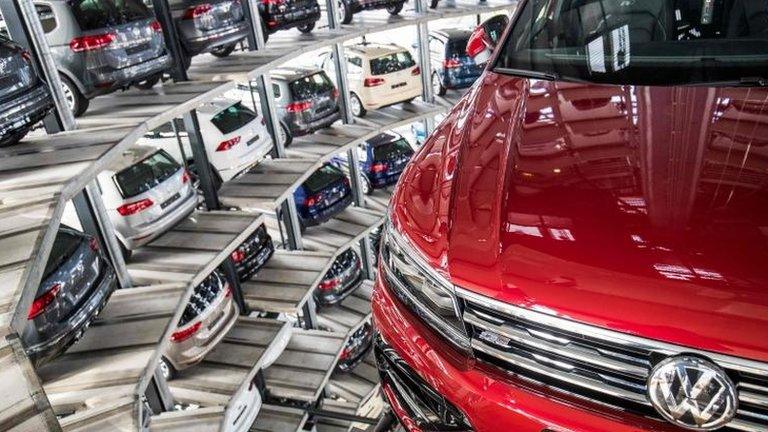Beetle: Volkswagen's iconic car comes to the end of the road
- Published
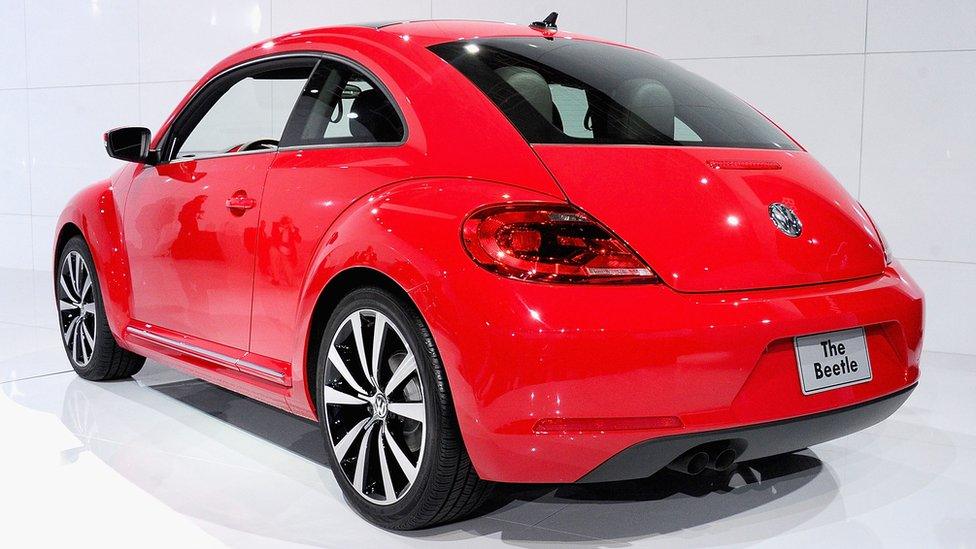
In recent years its production moved away from Europe to Mexico, closer to its key US market
Volkswagen is ending production of its Beetle in 2019, closing the door on one of the world's most iconic car designs.
The German company said output would end at its plant in Mexico next July after production of celebration models.
The Beetle has its roots in Nazi Germany with the creation of a "people's car", but went on to star in a series of successful Disney films as a vehicle called Herbie.
But sales, particularly in the key US market, have fallen in recent years.
Consumers in the US have increasingly turned to larger cars such as crossovers and sports utility vehicles.
Volkswagen, in the wake of the diesel emissions scandal and huge investment in electric vehicles, says it will look to slim down its model range with a greater focus on family and electric cars.
The company say the final Beetle models will be available in both coupe and convertible styles.
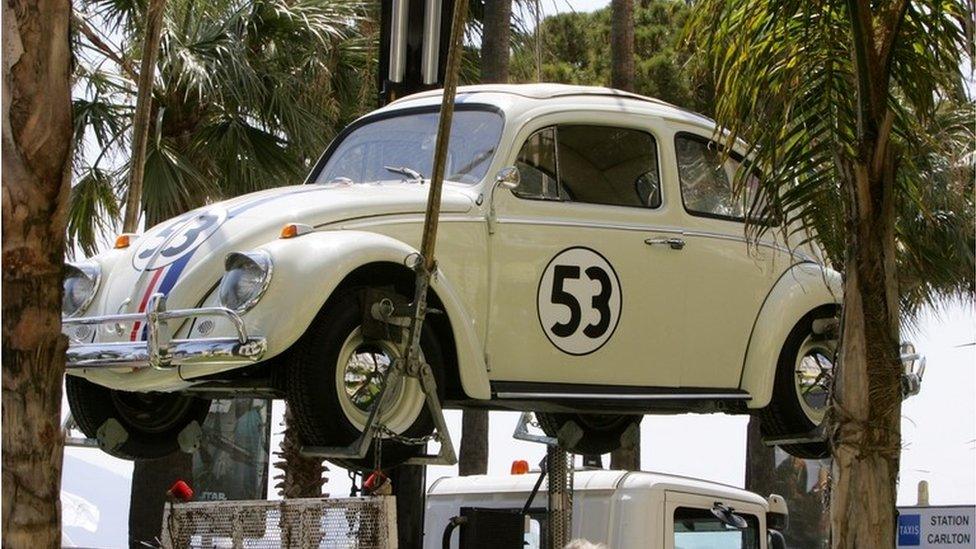
The iconic design found fame in the 1960s as Herbie in The Love Bug - a character revived in 2005
"The loss of the Beetle after three generations, over nearly seven decades, will evoke a host of emotions from the Beetle's many devoted fans," said Hinrich Woebcken, chief executive of Volkswagen Group of America.
The Beetle was originally designed in the 1930s by legendary engineer Ferdinand Porsche - a name now synonymous with fast cars - at the behest of Adolf Hitler, who wanted to see a cheap and practical mass-produced car made available to the German people.
But the outbreak of war would stall its production, as military necessity took precedence.
The plant would be severely damaged, then fell into the hands of allied forces - who were eventually to play a large part in its recommissioning.
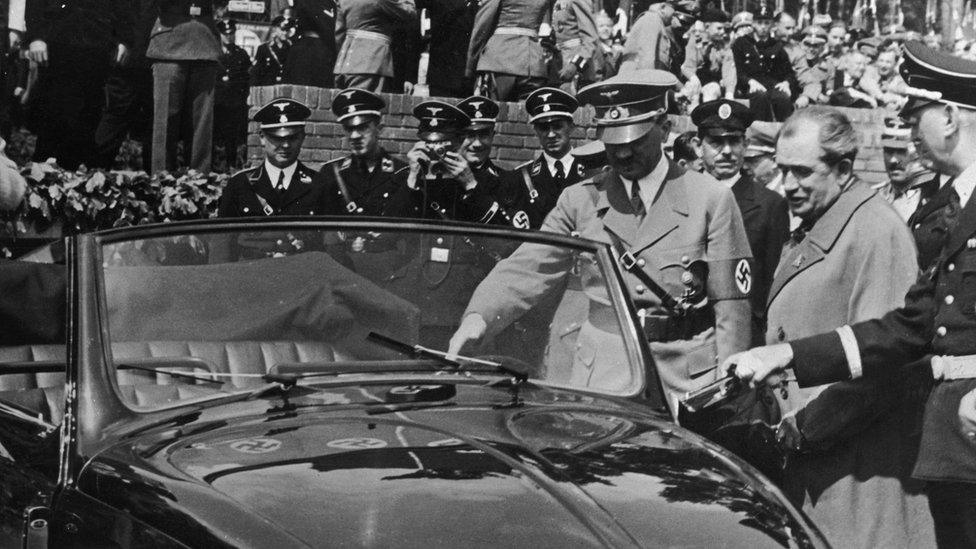
It was intended as a family saloon for the average German worker
Production began to take off in the late 1940s, and by 1955 a million of the cars were driving on German roads.
The design would find international fame in the 1960s and '70s in films featuring Herbie the Love Bug, a racing car with a mind of its own.
It was also popular with the 1960s counter-culture types who extolled the Beetle's small, practical, but aesthetic qualities.
Production of the Beetle has ceased and then been revived several times over the decades, with the last of the original design rolling out of VW's Mexican factory in 2003.
The "New Beetle" redesign, which was based on VW's Golf, stormed the US market in the late 1990s, selling more than 80,000 in 1999.
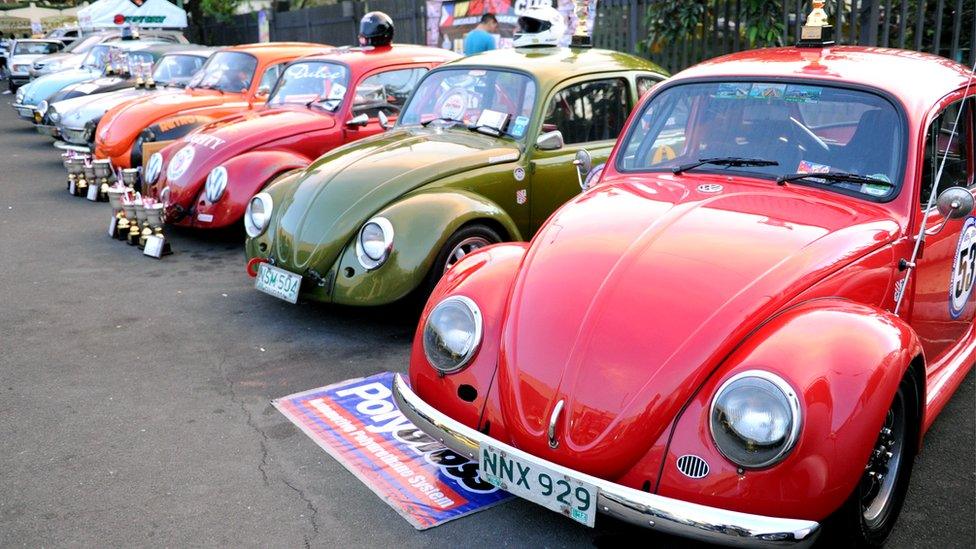
The iconic "bug" cars have been a cult favourite for generations
The company is already thought to have reviewed a possible model revamp and options for electric versions in recent years, before deciding on its abandonment.
But Mr Woebcken didn't completely rule out that the model could one day be resurrected: "Never say never."
Volkswagen sold 11,151 Beetles during the first eight months of 2018, down 2.2% from the same period a year earlier.
US consumers looking for a small Volkswagen vehicle overwhelmingly prefer the Jetta sedan, or the Tiguan compact sport utility vehicle.
- Published10 September 2018
